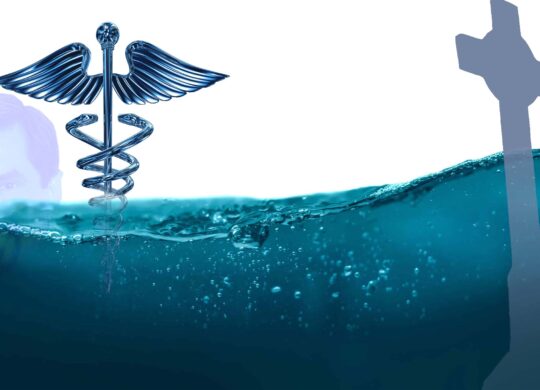Water?

A 25-year-old woman from Fresno is allergic to water. Yes, you read right: to water. Allergic. And that means even from her own tears and sweat, she breaks out in welts and hives.
Tessa Hansen-Smith confessed:
I would come out of showers and have huge welts on my skin, and my scalp would be bleeding after showering.”
She’s been suffering from this condition, called aquagenic urticaria, since she was 8 years old.
Declared the National Institutes of Health’s Genetics and Rare Diseases information center:
Aquagenic urticaria is a rare condition—affecting fewer than 250 people in the world—in which urticaria (hives) develop rapidly after the skin comes in contact with water, regardless of its temperature. It most commonly affects women. Some patients report itching too. It is a form of physical urticaria. The exact underlying cause of Aquagenic urticaria is currently unknown.”
Said Tessa:
Standing in a shower for more than five minutes, while also trying to not pass out as I hyperventilate while there’s water hitting me, is not a relaxing self-care experience like it can be for others.
Tessa reports that if she drinks water, or eats anything with a high water content, she feels a burning sensation—so she mostly drinks milk, as its water content is counterbalanced by fats and proteins.
The poor lady!
As for showering …:
I’ve cleaned my body with wet towelettes designed for it here and there, but even then those hurt.”
So she avoids strenuous activities, so as to avoid sweating, and having to shower:
I can keep body odor to a minimum by shaving and using deodorant where appropriate, but sometimes I do need a shower even though I don’t do a whole lot that makes me very dirty, because I can’t.”
People who hear about her disease are often skeptical:
When I did tell people about it in college, at University of California’s Davis campus, I would have people try to purposely splash water on me, or I would have people who would throw ice cubes at me.”
Of course, all her attempts to avoid water has also had negative effects. Recently, she was so dehydrated she developed ischemic colitis, which happens when blood flow to part of the large intestine is temporarily reduced.
I’m not getting any healthier because my condition just progresses.”
But she looks to the future and hopes to become a nurse.
I hope that I can go back to school again, I hope that I can get a job again. I hope that I can kind of find a sense of normalcy in life again.”
Like most things in life, water, also, is both good and bad.
Water can be ruinous:
God [is] to us a refuge and strength,
a help in distress, He is present always.
Therefore we will not fear when the earth quakes
and when the mountains totter into the heart of the seas,
when its waters roar [and] roil,
when the mountains shake at its surging.
Psalm 46:1–3
[After a recent “flooding” of my house, I don’t need any evidence for that!]
Water can be restorative:
Yahweh is my shepherd;
I will not lack.
In grassy pastures He makes me lie;
by restful waters He leads me.
Psalm 23:1–2
But waters are always, everywhere, under the control of God:
The waters saw You, God;
the waters saw You, they convulsed;
indeed, the deeps trembled.
In the sea was Your way,
and Your paths in the mighty waters,
and Your footprints not known.
You led like a flock Your people.
Psalm 77:16, 19–20
SOURCE:People Magazine; NIH











 Abe Kuruvilla is the Carl E. Bates Professor of Christian Preaching at The Southern Baptist Theological Seminary (Louisville, KY), and a dermatologist in private practice. His passion is to explore, explain, and exemplify preaching.
Abe Kuruvilla is the Carl E. Bates Professor of Christian Preaching at The Southern Baptist Theological Seminary (Louisville, KY), and a dermatologist in private practice. His passion is to explore, explain, and exemplify preaching.